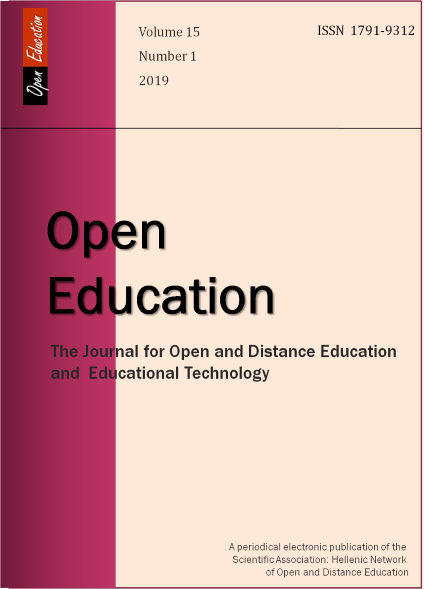E-mentoring as reception-support for new entrant teachers in primary education: A case study

Abstract
This research studies the possibilities and the hindrances of the implementation of the e-mentoring as a method of reception and support of the new entrant teachers in the public education. The sample of the research was 155 people (n = 155) out of 350 new entrant teachers study population (N ≈ 350), nonprobability sampling, who would be appointed in the primary education of the prefecture of Ilia, Greece during 2014- 2017. For the data collection, an authentic questionnaire was used, while the research questions referred to knowledge of legislation, functional penetration of e-mentoring, the opposition / the preference in relation to an alternative way of reception support of new entrant teachers and the homogeneity of the aspects. Also, there were held statistic controls using Pearson’s chi-squared (χ²) and Spearman’s rho rank correlation with significance level a = 0,05.
The results of the survey show at first that most of the new entrants have a confusing aspect as far as their support-assessment. Secondly, they are opposed with the new statute which they don’t consider as effective as the face-to-face mentoring. Furthermore, the sample is very homogeneous. Finally, in the educational community there are more technical skills as far as the introduction of e-mentoring than administrational ones. The pilot application of e-mentoring is recommended as well as its further consideration which has to do with the open learning of the evaluation in the public administration and the working stress.
Article Details
- How to Cite
-
Γιάνναρου Γ., & Αλεξανδρόπουλος Γ. (2019). E-mentoring as reception-support for new entrant teachers in primary education: A case study. Open Education: The Journal for Open and Distance Education and Educational Technology, 15(1), 92–110. https://doi.org/10.12681/jode.16367
- Issue
- Vol. 15 No. 1 (2019)
- Section
- Section 1
Copyright Notice
Authors who publish with this journal agree to the following terms:
Authors retain copyright and grant the journal right of first publication with the work simultaneously licensed under a Creative Commons Attribution Non-Commercial License that allows others to share the work with an acknowledgement of the work's authorship and initial publication in this journal.
Authors are able to enter into separate, additional contractual arrangements for the non-exclusive distribution of the journal's published version of the work (e.g. post it to an institutional repository or publish it in a book), with an acknowledgement of its initial publication in this journal.
Authors are permitted and encouraged to post their work online (preferably in institutional repositories or on their website) prior to and during the submission process, as it can lead to productive exchanges, as well as earlier and greater citation of published work.


